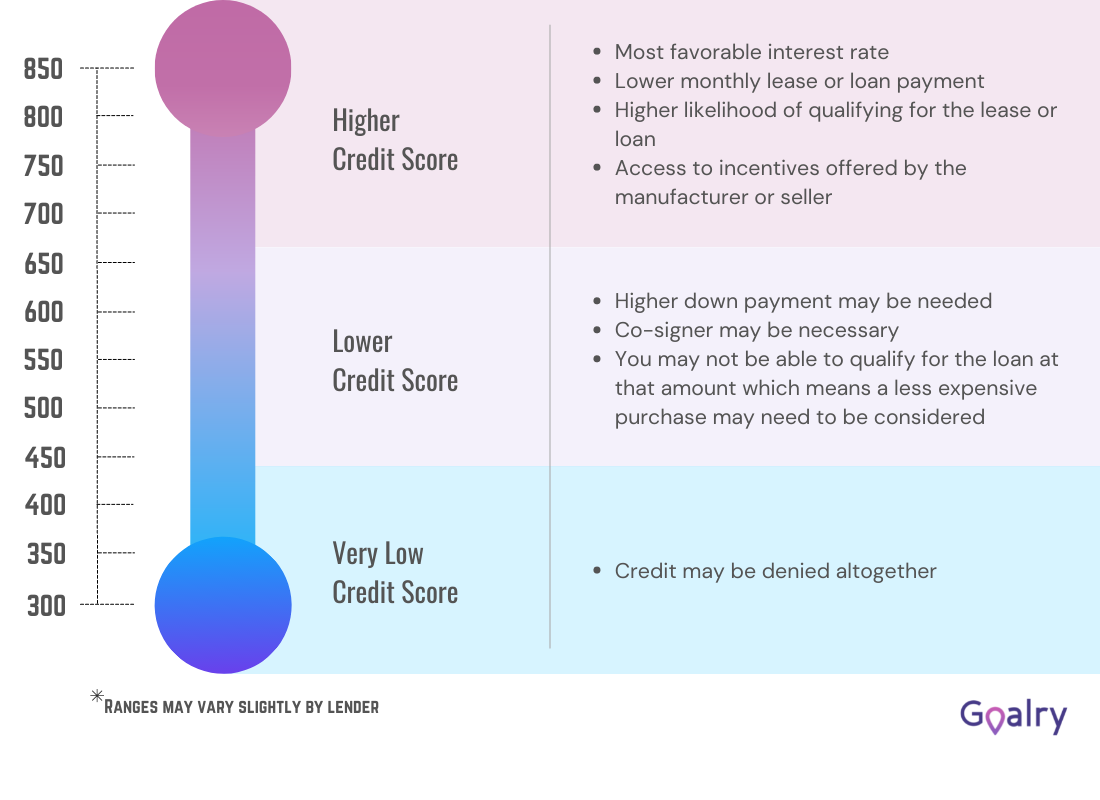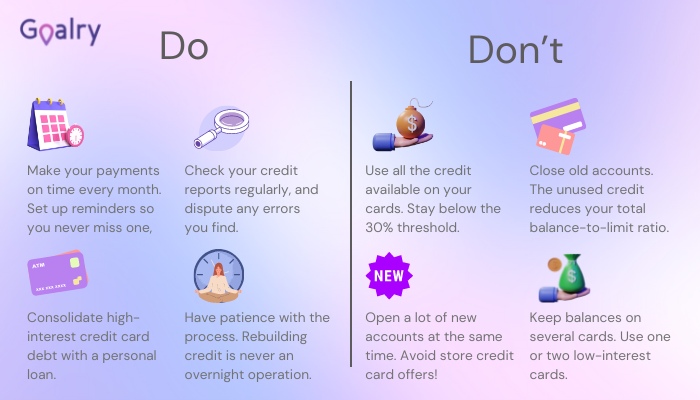Searching for a credit card is a bit like trying to find the perfect outfit. It’s an intensely personal experience. In other words, the credit card you choose should be a reflection of your financial situation as well as your current credit status. If you don’t have A1 credit you can’t apply for a platinum gold Mastercard. You need to know your creditworthiness and what type of credit card you can realistically expect to be approved for. With this being said, it’s a good idea to do your homework before you go ham and just start applying for credit. A little education about credit cards can go a long way and put you on the path to building a strong credit history if you’re proactive.
Starter Pack of Information About Credit Cards
In simple terms, credit is simply a loan. You are using a bank’s money to make purchases that you agree to pay for later. Most credit cards bill credit cardholders every month. This means that you are required to make a minimum payment on your credit card account once a month. You can carry a balance or you can pay the total balance in full. As long as you are making your minimum payments on time, your credit can grow.
However, other factors come into play, like how much you’ve spent on your credit cards and how many other credit cards you have. Although the concept of a loan is simple, other factors can make credit a little confusing. One of the things that many young people may view as an adult rite of passage is getting a credit card. Even if you’re not a young person, choosing to start using credit card, particularly if you’re new to it, can be both exciting and scary. However, it doesn’t have to be. Investing a little time in securing a fundamental understanding of how credit works are all you need. It’s important to know when you have a limited understanding of a topic.
A credit cards for dummies mindset helps you seek education before choosing a credit offer.
Let’s Dive Into the Ocean of Q&A Related to Credit Cards
Credit cards for dummies teaches the uneducated credit seeker to look at the details. You need to be careful and try to avoid credit card mistakes. We’ve learned that credit use is similar to borrowing money from a bank. In essence, that little plastic card acts as cash allowing you to make online purchases as well as purchases at stores and other retailers. The balance you create is interest-bearing, however. Most cards offer users a twenty to a thirty-day grace period. This means that if the balance is paid in full each month by the due date your purchases are interest-free.
However, you aren’t required to pay off the balance in full. You comply with the guidelines of the creditor if you pay the minimum balance by the due date every month. However, failure to male payments by your due date as well as failure to pay the minimum amount required reflects poorly on your creditworthiness and could damage your credit. Plus, you should keep in mind that the interest on your unpaid balance is growing monthly. If you’re not at least paying the minimum amount due, you could end up paying substantially more than the original amount of your purchases due to the interest that credit cards carry when balances aren’t paid in full.
Getting to the Bottom of It…
Credit can be tricky. Credit cards for dummies ideology encourages research and smart planning when it comes to credit. This is why its best to have a plan, process, and strategic approach when it comes to weeding through credit card offers. Truthfully, most sound so appealing, from cashback offers to free air miles, it can be quite confusing to navigate which credit card is worth your time. Fortunately, there are several steps that you can take to determine if a credit card is for you as well as if its al that it’s chopped up to be. As you open the letter with your credit card offer or read a new email detailing your credit card offer, your credit savvy education can come to your rescue.
There are several questions you should answer and consider to help guide your choice:
Is the Credit Offer Unsolicited and From an Unfamiliar Bank?
If so, do your homework. It’s not uncommon for scam artists to craft enticing emails and letters to get your personal information. Do your research to determine the legitimacy of the offer. Credit cards for dummies explores different credit offers and focuses on teaching consumers how to choose the best credit offers for themselves.
Does the Credit Offer Meet Your Needs?
If you know you need a card that offers balance transfers and a low APR, make sure that the card offer you’re considering has the elements of what you’re looking for. It may be a great card offer but if it doesn’t meet your specific needs, its not the card for you. The credit cards for dummies approach forced the consumer to become extremely personal and hyper-focused on their unique situation and whether or not a credit offer is truly for them.

Is the Fee Schedule Clearly Outlined and do You Agree with the Terms?
Many people don’t even look at a credit card fee schedule in detail. They may study the APR but don’t look at the nuts and bolts of an offer. This is important. Does the card charge exorbitant late fees? Are some of the fees strange or unusual? Most importantly, are you in agreement with the types of fees associated with the credit card?
These are loaded questions that you must answer for yourself to proceed. People who are intimidated by numbers may shy away from understanding or even looking at the fee schedule. However, this is a mistake. You don’t want to be a dummy when it comes to your credit. Credit cards for dummies encourages education in the place of willing ignorance.
Does the Card Have an Annual Fee and How does it Stack up Against Offers Without an Annual Fee?
Do the math on this one. It will help you to make a decision. You can answer many financial decisions in regards to credit offers by being willing to take a close look at all the fees that come with a card. Credit cards for dummies help people that aren’t in the know learn about credit and make better choices.
If the Credit Card Offer Includes the Lure of Rewards, are these Rewards Truly Relevant to You?
Many credit card offers come with the perk of reward offers attached to making certain purchases. This is an area where you need to pay close attention. If your credit card offers rewards for items or items that you don’t typically buy, it may not be worth pursuing. If you are a person who flies a lot, a card that offers free mileage as a reward for your purchases may be a useful card for you.
Selecting a credit card is an intensely personal experience that should take into consideration your lifestyle, budget and spending habits, as well as your preferences. Be honest with yourself. Not all that glitters is gold. Credit cards for dummies sheds light on how valuable an offer or offers are to your unique situation and challenges you to make sober decisions.
Does the Credit Card Offer Other Benefits that May be of Value?
Does your credit offer mention travel protection or purchase protection? These are both examples of additional benefits that may or may not be attractive to you. Regardless, use the benefits offered to help you decide on the card, along with all the other details. These additional benefits may have a practical use for you. Consider them when choosing a credit card. Credit cards for dummies seeks to eliminate confusion and educate consumers.
Is the Credit Card’s Payment Network Widely Accepted?
You may receive a great credit card offer from a payment network that isn’t widely accepted. For example, Visa and Mastercard are the two most widely accepted payment networks. although Discover and other networks may still be accepted, you may run into trouble with retailers or shops that don’t accept these less popular payment networks. You will need to consider how this might impact your ability to use the card in the way that you want to. If you don’t plan on using the card for a wide variety of purchases, having a card with a payment network that’s not widely accepted may not be a big deal. However, as an uneducated person, credit cards for dummies encourages consumers to consider this aspect of a credit offer as well.
Does the Credit Card Offer Align with Your Credit Score?
This is very important. You may get an American Express credit offer in the mail. However, your 460 credit score probably makes it highly unlikely that you’ll be approved for this card. Be honest and realistic with yourself. Applying for credit that you’re not eligible for only hurts you by creating an unnecessary inquiry on your credit profile. You don’t need that. Choose the credit offers you apply for wisely. Do your research.
Determine the target credit score that these creditors are most likely to serve and extend credit to. If its not your credit score or tier, move on to something more appropriate for you. Credit cards for dummies push consumers to make smart educated decisions when it comes to choosing credit cards that will best serve them. All credit offers aren’t created equal and some offers are better suited for you than others.

Does the Interest Rate Make the Credit Offer a Practical Choice for You and Your Spending and Payment Habits?
This is a big one. If you’re not one to pay off the entire balance on your credit cards monthly, you may need to ask yourself if getting a credit card with a high-interest rate is practical for you. If you’re someone who gets by making the minimum payment, you’ll be paying through the nose for your purchases if you choose a card with a high-interest rate. Also, if you’re someone who typically doesn’t carry a balance, the interest rate may not be as significant to you.
This is a personal question that demands your honesty. This could be the difference between paying considerably more for an item purchased on credit or paying considerably less based on the interest rate.
Have You Read ALL of the Fine Print?
This can be boring and tedious but it’s necessary when it comes to making an educated and informed choice about a credit offer. You will thank yourself later if you do your homework. The fine print will detail everything that will come with accepting this credit card offer. The fine print details fees, the fee schedule, benefits, and rewards, as well as a whole host of other details that you need to know if you want to be a cardholder.
Consider this, you will only have to pour over the fine print once or twice to make an educated solid decision. However, the time you take to do this will be well worth it. You won’t be fooled or caught off guard. Plus, this allows you to ask any questions you may have about the credit offer before you apply.
Putting All the Pieces Together
All the questions that you consider regarding a credit card offer will help you to make a solid and informed choice about which credit cards will be best for you. It’s best to leave no stone unturned. The more you know the better. Many things aren’t readily apparent when it comes to evaluating a credit offer. This is why you should take your time and read between the lines as much as possible. You can’t go wrong by doing this. After all, this is your financial health and future that you will be impacting when you make a credit card choice. It’s best to choose well.
For example, if you need brain surgery and need to choose between two or three different surgeons, yure going to want the one that specializes in your particular kind of brain surgery and has the credits and training to show it. Right? Although credit and brain surgery are two different things, you still need to make a choice that serves you and your unique situation well.

Late Payments, Missed Payments, and Maxed Out Credit Cards
As a new credit cardholder, it’s a good idea to get a firm understanding of one thing. If you don’t make your payments on time you will tarnish your credit history. On the other hand, paying off a credit card balance on time can improve your credit score. Payment history comprises thirty-five percent of your credit score so it’s safe to assume that it’s pretty important to creditors. It’s common sense. If you loan someone money you want to know that you’re going to get it back, as promised. In essence, a credit card is a small plastic promise to pay back borrowed funds. It can help people in a pinch.
However, when it’s neglected and not handled properly, it can destroy your financial health and creditworthiness. If you miss payments, pay late, and /or use all the funds available on your credit card, you will be perceived as a credit risk if this becomes the way you handle credit in general. Be careful with your spending, honor the terms of your credit card, and pay your bill on time.
Calling All First Timers and Credit Card Newbies…
Now that you have a basic understanding of how credit works, you may be wondering how to choose and pursue the right credit card offers best suited for you. This is not difficult either. There are many tools to help you with this pursuit. You can use different tools to help you determine your best first credit card and you can also compare credit cards online. You should do both. Research and explore as much as possible because this will help you to find the credit card that is truly best for you. Loanry can help. We select credible credit card companies for you to consider.
Conclusion
Navigating credit card offers when you don’t know much can be a little intimidating. However, you don’t have to be intimidated if you don’t want to be. All you need is a little education and credit savvy along with the willingness to do your homework. Don’t be lazy and don’t take short cuts. Read the fine print. Research unfamiliar banks and understand the details of any credit offer before you apply. There are many tools that you can use to help guide your decisions. Many are free and most just require common sense and a willingness to pay attention to details.

Nwayita is a personal finance writer who knows the value of getting the most out of her dollars. She understands that financial savvy is the key to making her budget stretch. She takes pride in sharing her financial planning and spending advice generously and prolifically. Her passion lies in helping millennials, as well as people of all ages and from all walks of life, develop rich habits they can use for life.
